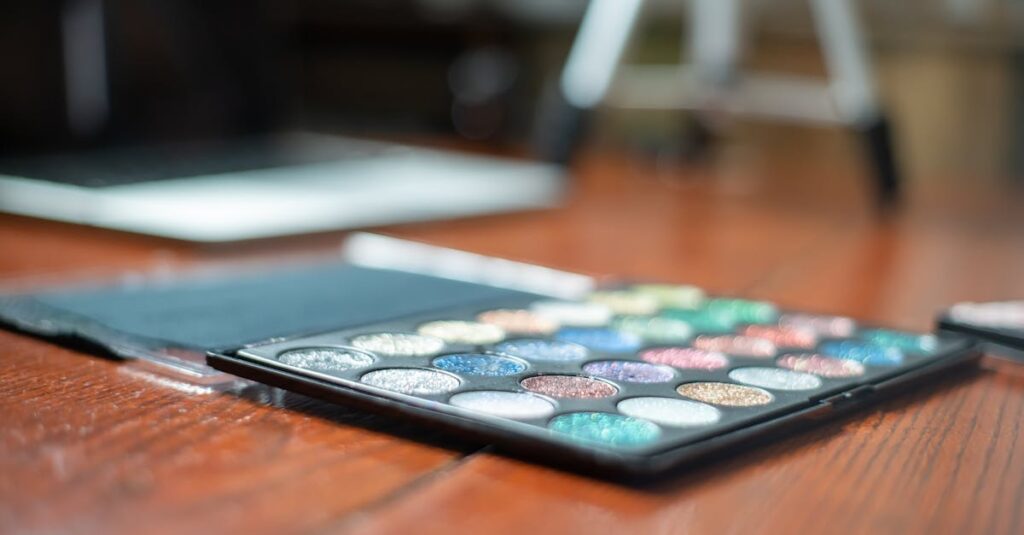Table of Contents
ToggleCreatine’s the go-to supplement for gym enthusiasts looking to boost their performance and pack on muscle. But amidst the protein shakes and workout routines, a pressing question looms: does creatine bloat your face? Imagine hitting the gym, feeling like a superhero, only to look in the mirror and see a balloon instead. Not exactly the transformation most people are aiming for.
Overview of Creatine
Creatine is a naturally occurring compound found in meat and fish. It helps supply energy to muscles during high-intensity exercise. Many athletes and fitness enthusiasts use creatine supplements to boost performance, increase lean muscle mass, and enhance recovery.
Supplementation typically raises creatine levels in muscle tissue. Studies show that it can improve strength and hydration in muscles. Hydration can occasionally lead to water retention, which some users report as bloating.
Bloating may manifest in various ways, including noticeable swelling in the face, which raises concerns for some individuals. Some people experience different responses to creatine due to variations in body composition and hydration statuses.
Consultation with a healthcare professional before starting supplementation is advisable, especially for those with pre-existing conditions. Individual reactions may depend on the dosage and type of creatine.
Creatine monohydrate is the most common form used, known for its effectiveness and safety. Other forms, such as creatine ethyl ester or buffered creatine, are also available but lack the extensive research backing monohydrate.
For optimal results, proper hydration is essential during supplementation. Users should drink sufficient water to minimize the risk of bloating and enhance the benefits of creatine. Reports suggest that adequate hydration can help mitigate any undesirable side effects associated with its use.
Understanding Bloating

Bloating refers to an abnormal swelling or enlargement of the abdomen or specific areas of the body, often due to excess fluid or gas. Commonly, this condition affects the stomach, but it can manifest in other areas, such as the face.
What Is Bloating?
Bloating occurs when excess gas builds up in the gastrointestinal tract or when fluid accumulates in tissues. It often presents as a feeling of fullness or tightness in the affected area. In many cases, bloating results from dietary choices, digestive disorders, or lifestyle factors. Some individuals experience bloating more acutely in their face, where swelling may be notably visible, leading to concerns about appearance.
Causes of Facial Bloating
Facial bloating stems from multiple factors. Fluid retention frequently occurs due to increased salt intake, which causes the body to hold onto water. During creatine supplementation, water retention in muscle tissue can also influence fluid distribution, potentially leading to noticeable swelling in the face. Allergic reactions and food intolerances often trigger inflammation, resulting in facial puffiness. Hormonal changes, particularly during menstrual cycles, can exacerbate bloating symptoms, while dehydration may contribute by causing the body to retain water in response.
The Effects of Creatine on the Body
Creatine supplementation influences various physiological processes in the body. Understanding how creatine functions clarifies its potential benefits and side effects.
How Creatine Works
Creatine primarily enhances energy production in muscles. It increases adenosine triphosphate (ATP) availability, crucial for short bursts of intense activity. Upon supplementation, creatine levels rise in muscle tissue, leading to improved strength and muscle mass. Many athletes notice increased performance during high-intensity workouts. When proper hydration accompanies creatine use, the benefits amplify, allowing for better physical outcomes. Individual responses vary based on factors like hydration status and body composition.
Common Side Effects
Some individuals experience side effects when using creatine. Water retention represents a common occurrence, often leading to bloating. This can manifest in various body areas, particularly the face. Besides bloating, gastrointestinal discomfort might arise, including cramps or diarrhea. Allergic reactions, although rare, can also happen. Hormonal fluctuations and changes in dietary habits contribute to individual experiences with creatine. Monitoring intake and ensuring adequate hydration can help mitigate many side effects.
Does Creatine Bloat Your Face?
Facial bloating associated with creatine supplementation remains a common concern. Understanding the scientific background helps clarify this issue.
Scientific Studies and Evidence
Research indicates that creatine increases water retention in muscle tissue, potentially leading to temporary swelling in various body areas. A study published in the Journal of the International Society of Sports Nutrition points out that individuals may experience heightened water retention during their initial phases of supplementation. This occurs primarily because muscles draw in additional water. Hydration status also plays a significant role, as increased fluid intake can mitigate bloating effects. While not all users report facial swelling, some do notice changes due to individual body responses. Understanding these physiological processes lends insight into why some may see a difference in facial appearance.
User Experiences and Anecdotes
User experiences regarding facial bloating from creatine vary widely. Many gym-goers report noticeable swelling in their faces, particularly during the loading phase. Individuals often express concern about how this can affect their overall appearance. In contrast, others testify to minimal or no bloating, attributing this outcome to proper hydration practices. Community forums reveal a dialogue around managing the side effects of creatine, with hydration and dosage adjustments frequently mentioned. Personal anecdotes highlight that facial bloating can depend on body composition and dietary factors as well. Taking these experiences into account can help individuals navigate expectations regarding creatine supplementation.
Managing Bloating While Using Creatine
Bloating can be a concern for those using creatine, but managing it effectively is possible. Dietary choices and hydration practices play significant roles in minimizing this side effect.
Dietary Considerations
Eating a balanced diet can help reduce bloating. Whole foods rich in fiber, including fruits, vegetables, and whole grains, promote digestion and overall gut health. Limiting processed foods, which often contain high salt levels, may lessen fluid retention. Including anti-inflammatory foods, like leafy greens and omega-3 fatty acids, may also aid in reducing swelling. Monitoring sodium intake is crucial because excessive salt can aggravate bloating. Some individuals find that keeping a food journal helps identify specific foods that may contribute to their discomfort.
Hydration and Creatine Use
Hydration supports effective creatine supplementation while mitigating bloating. Drinking adequate water is essential, as it aids in dispersing creatine throughout the body. Many suggest consuming at least 64 ounces of water daily, increasing this amount when using creatine. Proper hydration optimizes muscle function and reduces the likelihood of water retention. Staying hydrated also promotes better kidney function, assisting in eliminating excess sodium. Individuals should pay attention to their body’s signals, adjusting water intake based on physical activity levels and climate conditions.
Creatine supplementation can be a game-changer for those looking to enhance their athletic performance. However the concern about facial bloating is valid for many users. Individual responses to creatine vary significantly influenced by factors like hydration and dietary choices.
Staying well-hydrated is key to minimizing potential side effects including facial swelling. By maintaining a balanced diet and monitoring water intake athletes can enjoy the benefits of creatine while managing any unwanted bloating. Ultimately understanding personal body responses and adjusting accordingly can lead to a successful supplementation experience without compromising appearance.




